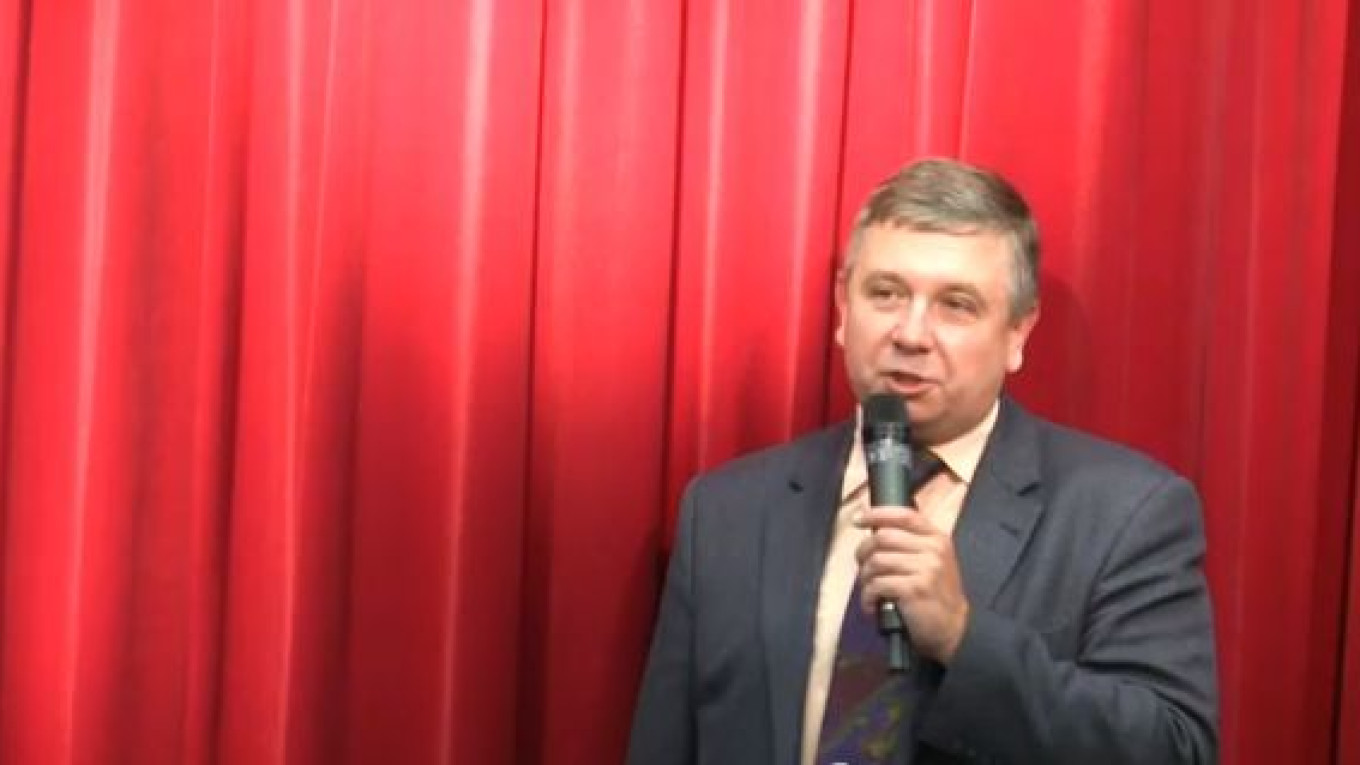Apparently smarting from his recent arrest in the Netherlands, Russian diplomat Dmitry Borodin took to the Internet on Friday, posting tweets linking to old videos of supposed abusive behavior by the Dutch police.
"Perfect provocation by the police!!!" Borodin tweeted, as well as: "Police losing it again — Amsterdam," and "You're asking to get kicked? You'll get kicked!!"
The tweets included links to YouTube videos of Dutch police officers, which were posted between 2010 and 2012.
One of the videos showed police trying to get hold of a man who was pushing them off, another tweet linked to a video of police holding a suspect to the ground as they tried to handcuff him, and a third video showed an officer pushing a child who had insulted him.
Borodin ended two of his tweets with the hashtag #human rights, echoing the general Russian sentiment that Dutch authorities broke the law in their handling of Borodin's case.
In reply to a tweet asking the diplomat whether similar police actions don't take place in Russia as well, Borodin replied "unfortunately this happens everywhere and everyone is in [a] position to teach each other human rights."
Borodin said he was beaten by police officers after they arrested him in his home in The Hague last month, in an incident that Russia says saw the Netherlands breach Borodin's diplomatic immunity.
The Russian Foreign Ministry demanded that the Netherlands apologize and prosecute the officers involved in the arrest.
Though the Netherlands issued an apology for Borodin's arrest, it has repeatedly said it will not prosecute the police officers who, it says, responded adequately to a neighbor's complaint about possible child abuse at the residence.
The incident took place among a series of spats between Moscow and The Hague during the Russian-Dutch bilateral year, which drew to a close last weekend with a visit from Dutch King Willem-Alexander and Queen Maxima.
Shortly after the incident involving Borodin, assailants posing as electricians gained entry into the Moscow apartment of Dutch diplomat Onno Elderenbosch, beat him, ransacked his home and drew a heart symbol pierced with an arrow and the letters "LGBT" in lipstick on a mirror in an assault that many interpreted as an act of revenge.
A Message from The Moscow Times:
Dear readers,
We are facing unprecedented challenges. Russia's Prosecutor General's Office has designated The Moscow Times as an "undesirable" organization, criminalizing our work and putting our staff at risk of prosecution. This follows our earlier unjust labeling as a "foreign agent."
These actions are direct attempts to silence independent journalism in Russia. The authorities claim our work "discredits the decisions of the Russian leadership." We see things differently: we strive to provide accurate, unbiased reporting on Russia.
We, the journalists of The Moscow Times, refuse to be silenced. But to continue our work, we need your help.
Your support, no matter how small, makes a world of difference. If you can, please support us monthly starting from just $2. It's quick to set up, and every contribution makes a significant impact.
By supporting The Moscow Times, you're defending open, independent journalism in the face of repression. Thank you for standing with us.
Remind me later.


